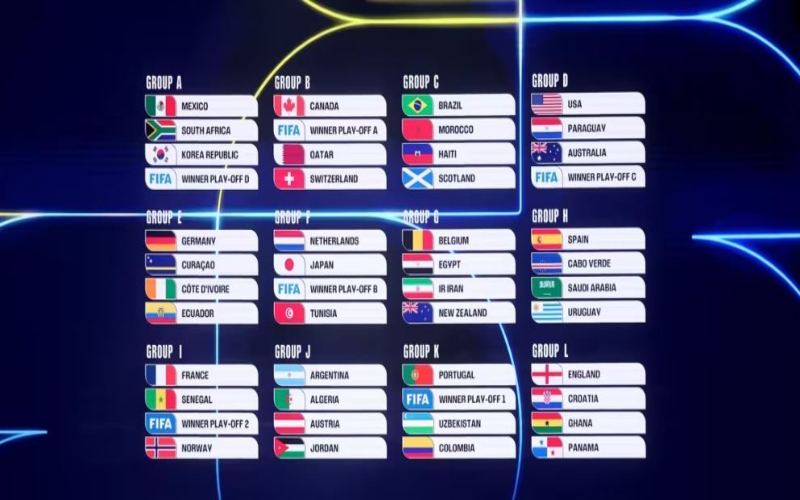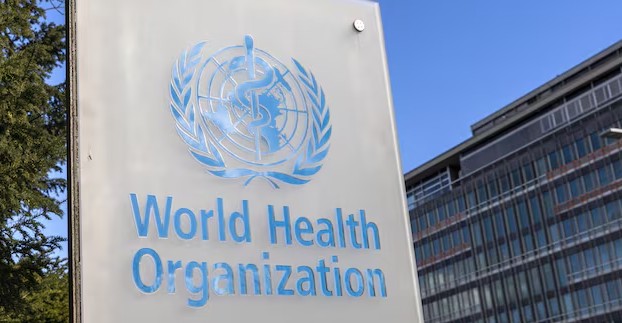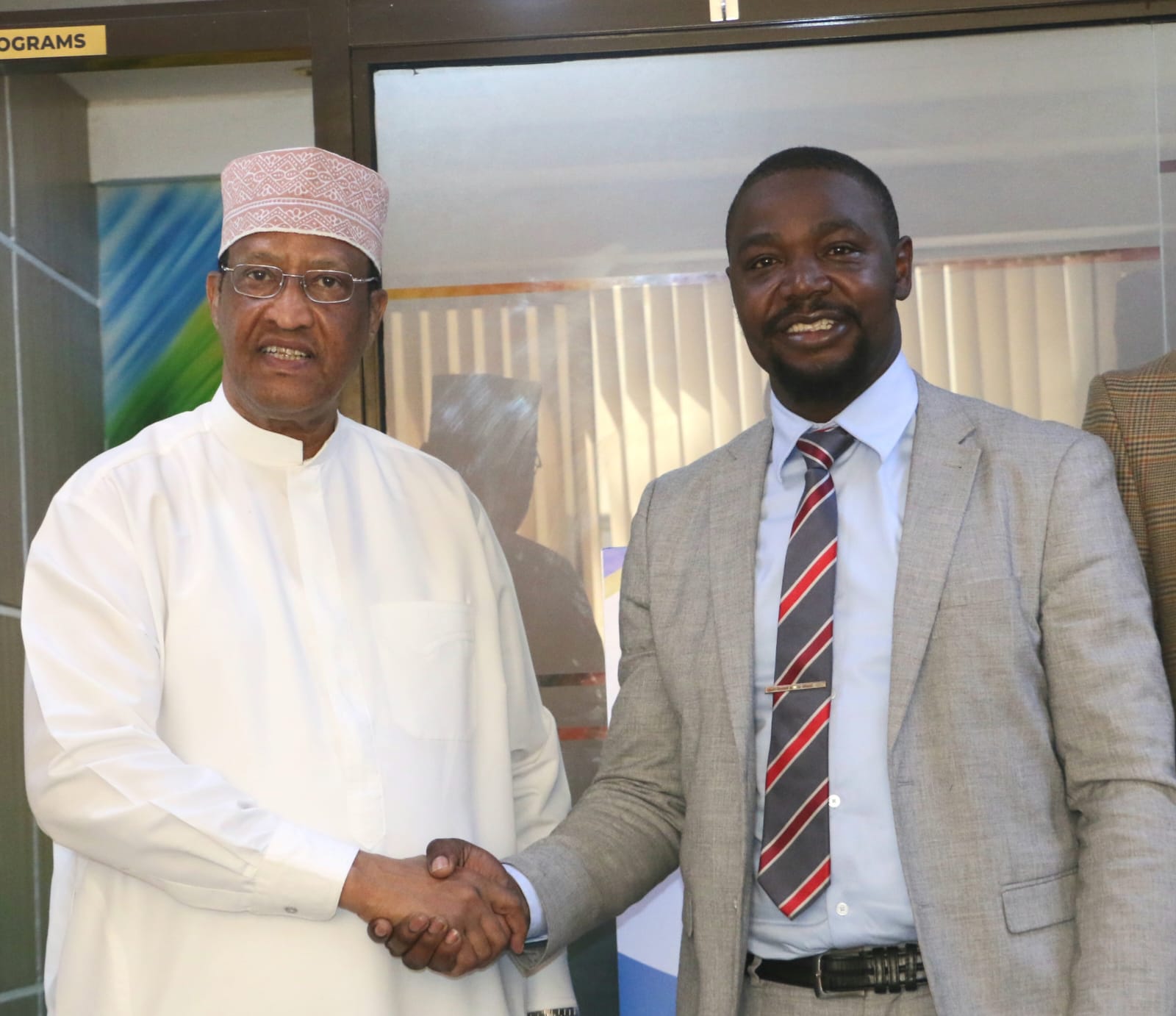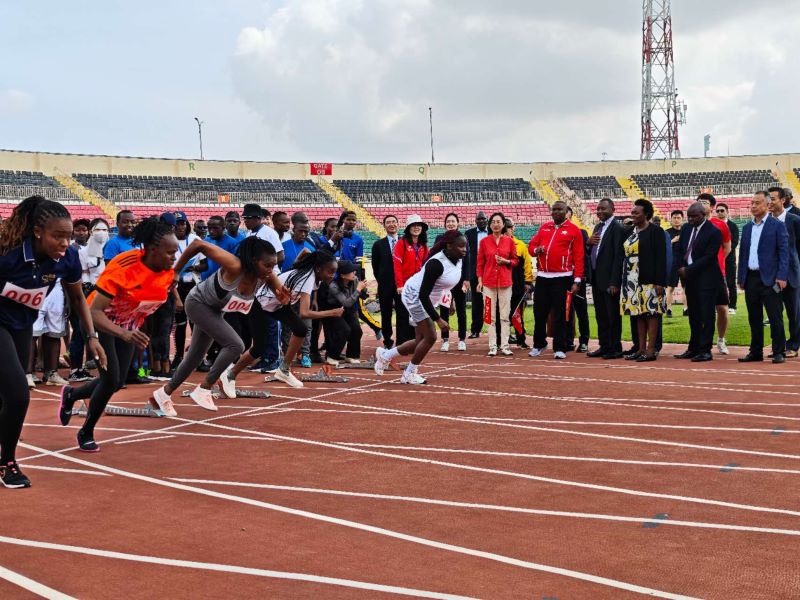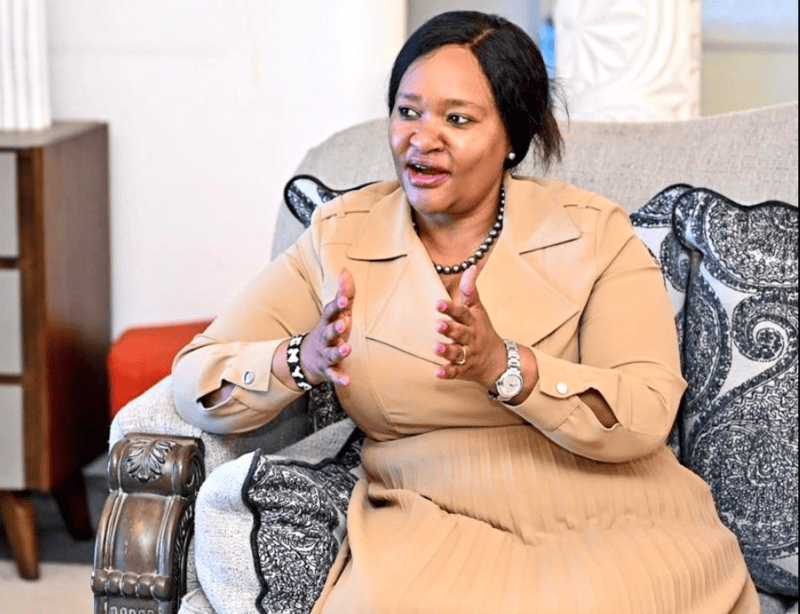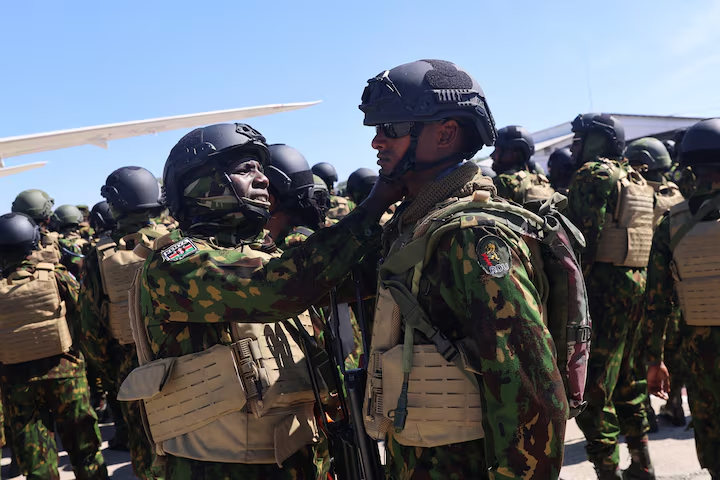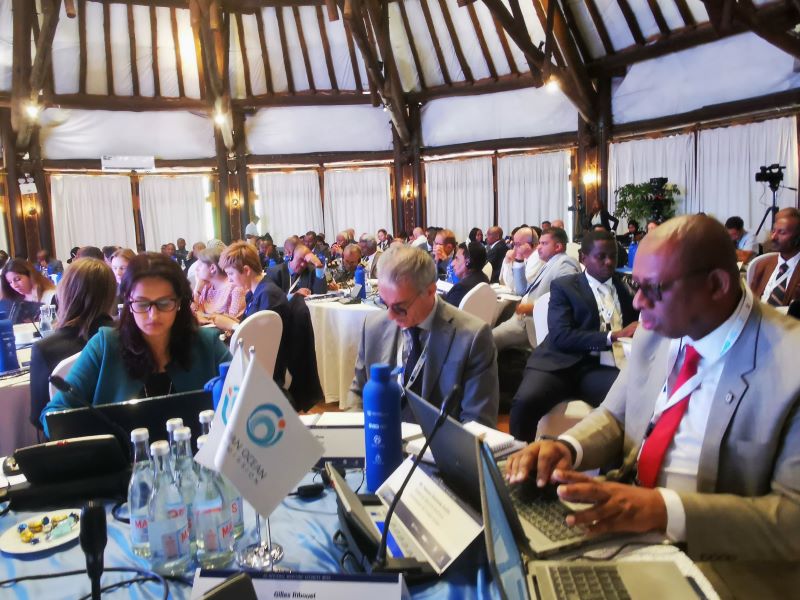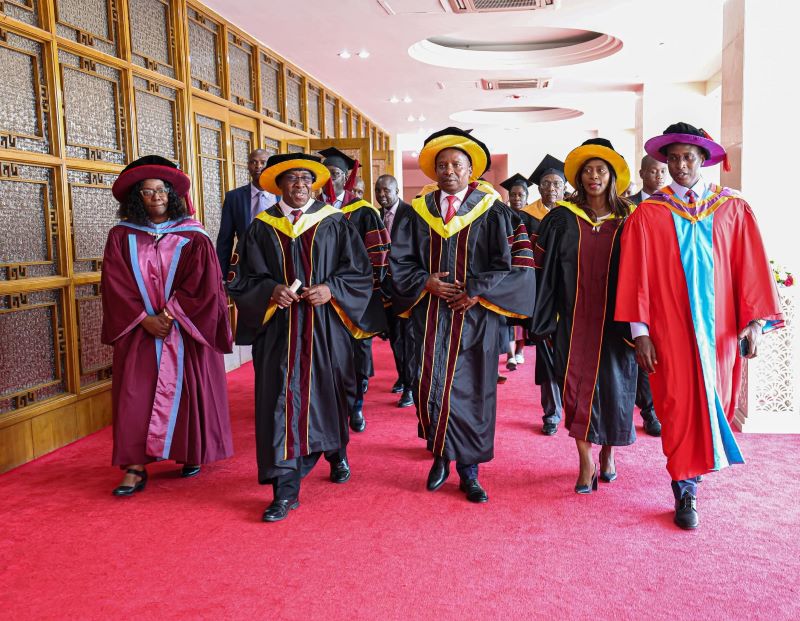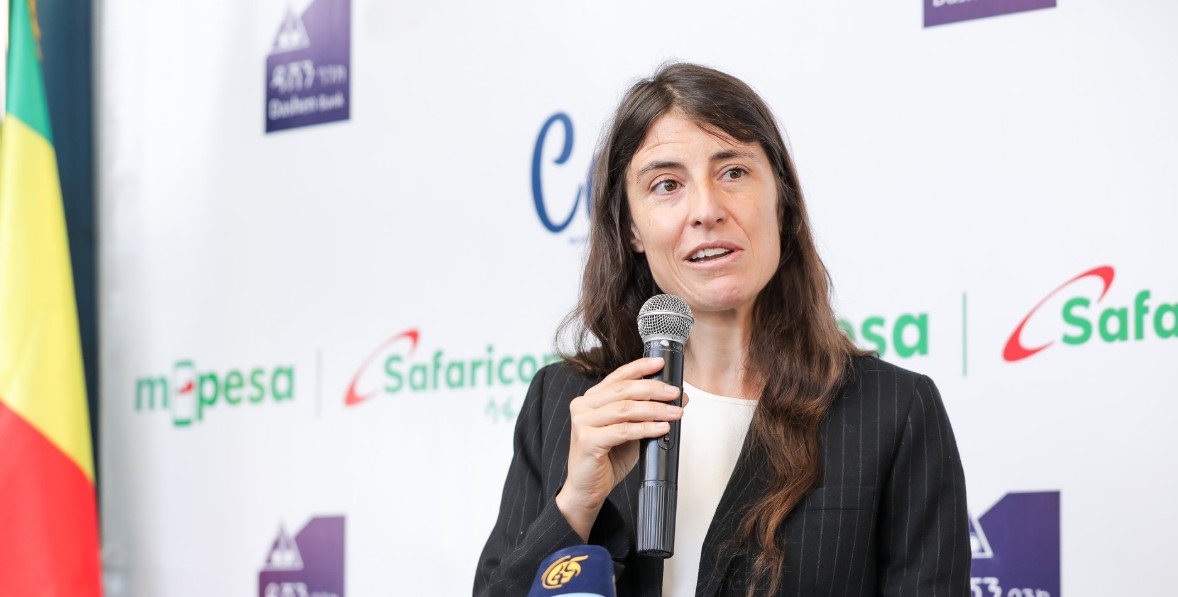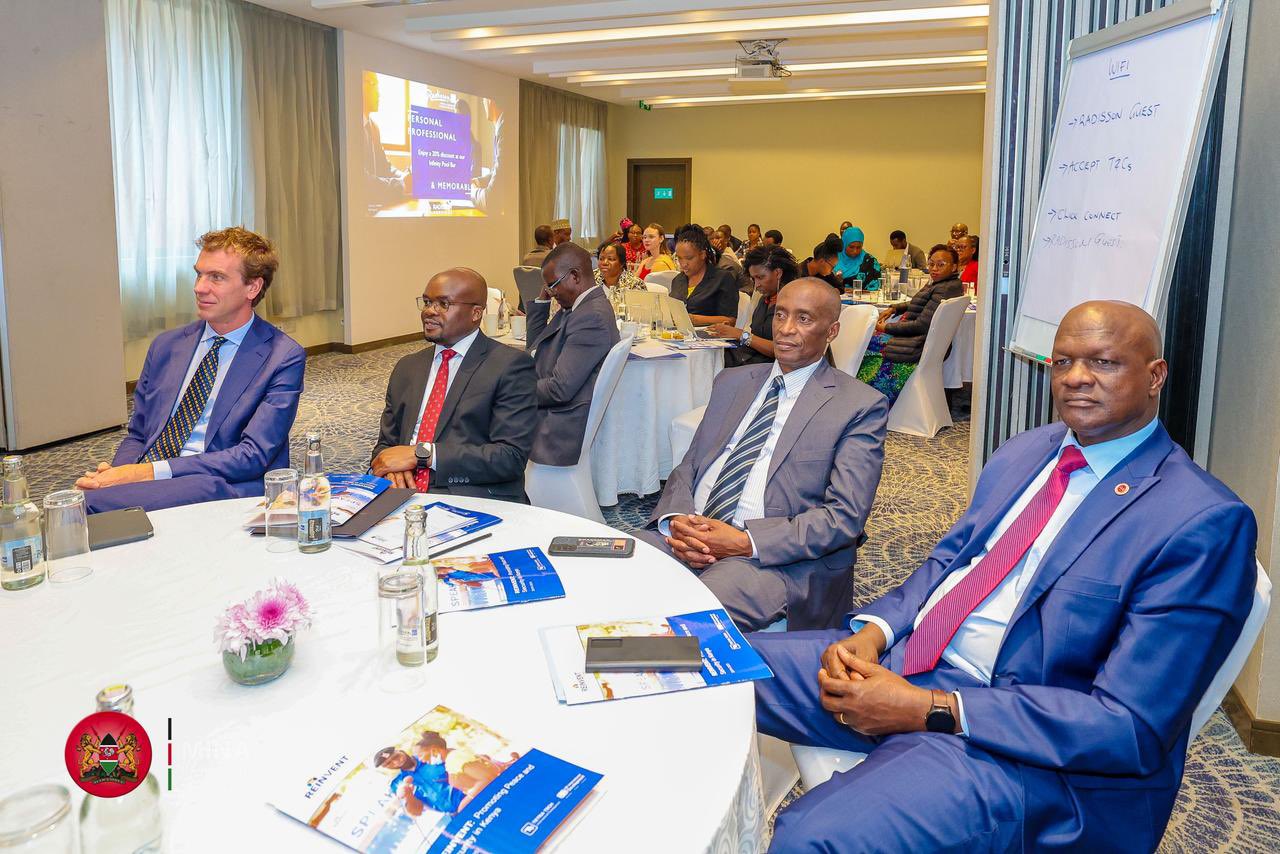Ethiopia’s Grand Mufti calls for peaceful coexistence to combat violent extremism
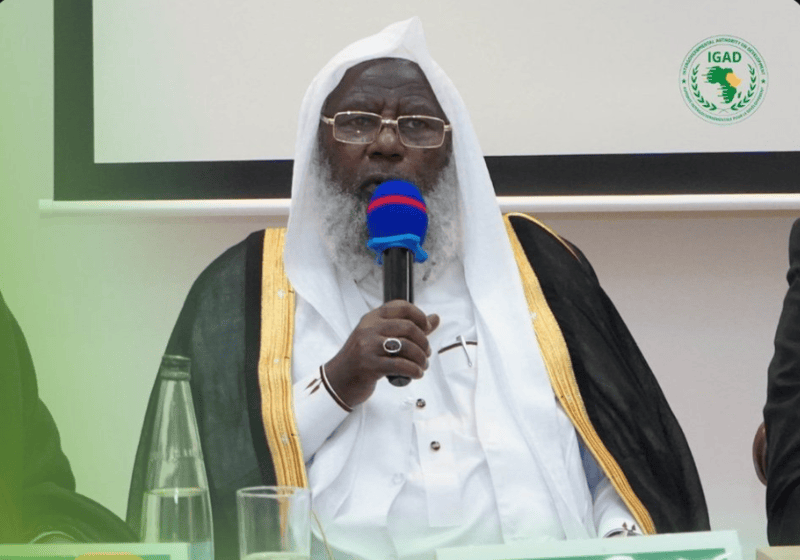
The workshop aimed to create platforms for cooperation and coordination among religious leaders, teachers, and media practitioners, who play key roles in preventing and countering violent extremism (PCVE).
The Grand Mufti of Ethiopia, Dr Sheikh Haji Ibrahim Tufa, has joined the call for an end to violent extremism by advocating for peaceful coexistence among communities within the member states of the Intergovernmental Authority on Development (IGAD).
Sheikh Haji, who also serves as President of the Ethiopian Islamic Affairs Supreme Council and Deputy of the Inter-Religious Council of Ethiopia, emphasised that all religions call for peace, asserting that faith is incomplete without it.
More To Read
- Ethiopia blasts Egypt for escalating hostile rhetoric and rejecting dialogue over Nile waters, GERD
- Kenyan journalists celebrate climate reporting wins at IGAD Media Awards 2025
- IGAD ministers renew regional pact on refugees as Kenya demands fair burden‑sharing
- Kenya’s refugee population hits 860,000 as State pushes integration plan
- Faith under fire: How social media fuels rising attacks on religions, followers in Ethiopia
- IGAD rallies region to tackle deepening displacement crisis amid funding cuts, conflict
"Even worldly things cannot be attained without peace. Everything depends on peace. A Muslim or any person who does not care about others is not a true follower of the Prophet. Our lives depend on peaceful coexistence, living and collaborating. That is the most important aspect of our lives. All of us love life and hate death; the only guarantee for life is peace and peaceful coexistence. Without peace, there is no life," he said.
He was speaking during a three-day regional workshop organised by IGAD's Centre of Excellence for Preventing and Countering Violent Extremism (ICEPCVE). The workshop aimed to create platforms for cooperation and coordination among religious leaders, teachers, and media practitioners, who play key roles in preventing and countering violent extremism (PCVE).
Sheikh Haji's sentiments were echoed by His Grace Abuna Phillipos, the Archbishop of the South Omo Diocese in Ethiopia and representative of the head of the Ethiopian Orthodox Church, who urged religious leaders to confront violent extremism.
"You must challenge the challenge to bring change. Violent extremism is the challenge of the world," he urged.
Also present was the leader of the Evangelical Church in Ethiopia, Tsadiku Abdo, alongside religious leaders from South Sudan, Kenya, Uganda, Somalia, and Djibouti.
"As we know, the Bible teaches about the God of peace and the gospel of peace. In Ethiopia, we live (with different religions) together with respect for each other, not tolerance. I don’t like the word tolerance; I prefer respect for each other," said Mr Abdo.
The workshop recognised the influential role of religion in shaping human behaviour. It sought to dispel misconceptions that lead to radicalisation and to empower credible voices to challenge and change the narratives propagated by violent extremist organisations.
"Violent extremism is not about religion, politics, or any other societal issue. As the name itself indicates, violent extremism reflects the extreme aspects of humanity that seek to undermine the social cohesion of our society," IGAD Executive Secretary Dr Workneh Gebeyehu said.
"All of us love life, without peace there is no life. To enjoy the other blessings, including religion, there has to be peace. A person who doesn’t care about others is not amongst the followers of the Prophet Muhammad."
— ICEPCVE (@IGAD_CEPCVE) December 18, 2024
-
Grand Mufti Dr. Sheikh Haji Ibrahim Tufa, President,… pic.twitter.com/F0657LaIlp
Dr Workneh highlighted that while IGAD's mandate includes regional integration, some member states continue to grapple with the challenge of violent extremism.
"Our member states are doing their best to counter all aspects of extremism. We ask our religious leaders, teachers, and journalists to contribute your part in uniting this region. We are all powerful in countering this challenge. As the religious leaders said, no teachings of Jesus Christ or Allah instruct us to harm each other," he added.
Kenyan Muslim religious scholar and lawyer Sheikh Ibrahim Lethome noted that perpetrators of violent extremism exploit religion because it is emotive, unquestionable for many, and promises rewards beyond this world, making it a powerful pull factor.
He further emphasised that while Islam has often been misused as an excuse by attackers, members of the Muslim community have suffered the most casualties, underscoring that the issue is not about religion.
"Any religion can be misused. There have been questions about new converts being easily recruited. I can tell you new converts are often misguided because they lack a proper understanding of the scripture," Sheikh Lethome explained.
He also pointed out that violent extremists exploit grievances such as economic and political marginalisation, historical injustices, human rights abuses, discrimination, and retaliation over events occurring elsewhere to propagate radicalisation and attacks.
The religious leaders, teachers, and media practitioners at the workshop committed to using their roles in imparting knowledge to enlighten communities about narratives that fuel violent extremism and counter them effectively.
Top Stories Today

